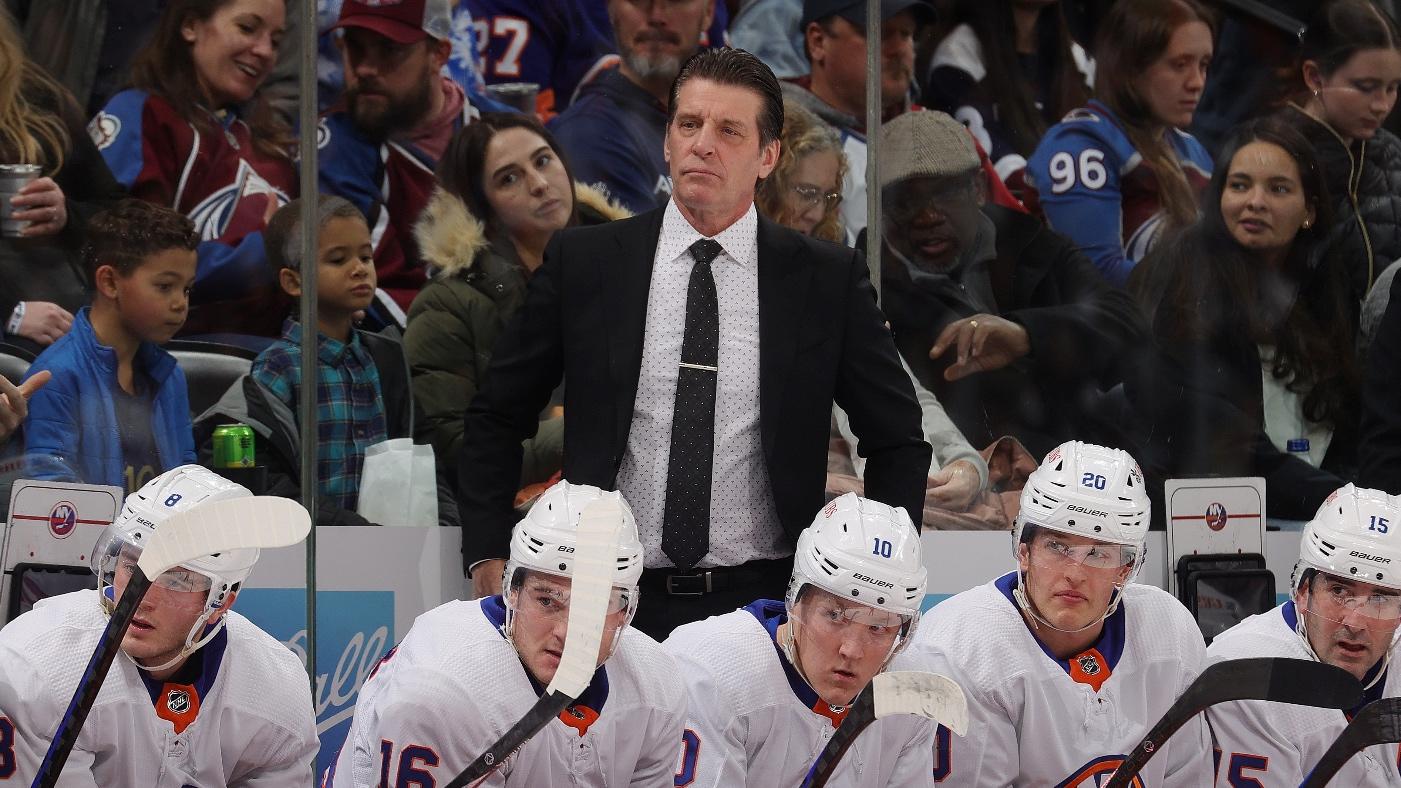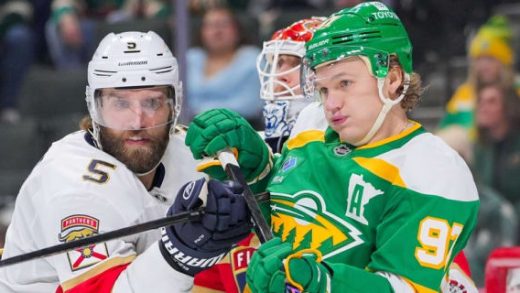
The New York Islanders’ head coach, Lane Lambert, recently voiced his frustration with the officials following a controversial call in their overtime loss to the Colorado Avalanche. The call in question occurred during the extra period and ultimately led to the Islanders’ defeat.
The game was tightly contested, with both teams battling hard for the victory. As the clock ticked down in regulation, the score remained deadlocked at 2-2, forcing the game into overtime. The Islanders had several scoring opportunities throughout the game, but were unable to capitalize on them.
In overtime, with tensions running high, the Islanders found themselves on the wrong end of a questionable call. As they were pressing for a scoring chance, one of their players was tripped by an Avalanche defenseman. However, to the dismay of the Islanders and their fans, no penalty was called on the play.
Coach Lambert, known for his passionate approach to the game, did not hold back his criticism of the officials after the game. He argued that the missed call directly impacted the outcome of the game and cost his team a well-deserved victory.
Lambert’s frustration is understandable considering the importance of each point in a tightly contested playoff race. Every win or loss can have significant implications on a team’s playoff positioning. The Islanders are currently fighting for a playoff spot and every point matters.
Controversial calls are an unfortunate part of any sport, and hockey is no exception. Referees and linesmen are tasked with making split-second decisions in fast-paced games, often under immense pressure. While they strive for accuracy, mistakes can happen.
However, it is important to note that officials are human and are bound to make errors from time to time. Their job is challenging, and they have to make judgment calls based on what they see in real-time. It is impossible for them to catch every infraction or make every call correctly.
Nevertheless, Lambert’s criticism sheds light on the ongoing debate surrounding the use of video review in hockey. Many argue that expanding the scope of video review could help eliminate controversial calls and ensure a fair outcome. However, others believe that too much reliance on video review would disrupt the flow of the game and slow down the overall pace.
In recent years, the NHL has made efforts to incorporate more video review into the game. Certain plays, such as goals and potential offside or goaltender interference calls, are subject to review. However, penalties and non-calls are not currently reviewable.
The controversy surrounding the Islanders’ loss to the Avalanche has reignited the discussion about expanding video review to include penalties. Proponents argue that it would provide a fairer outcome and reduce the impact of human error. However, opponents argue that it would disrupt the natural flow of the game and potentially lead to longer game times.
Ultimately, the decision lies with the NHL and its officials. They must strike a delicate balance between maintaining the integrity of the game and ensuring fairness for all teams involved. Until then, controversial calls will continue to be a part of hockey, and coaches like Lane Lambert will continue to voice their frustrations when they feel their team has been wronged.

